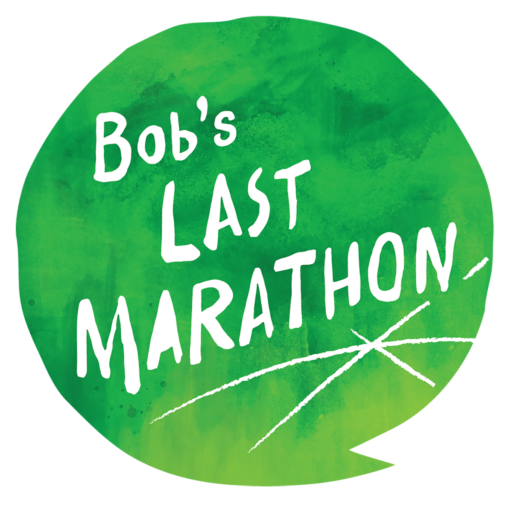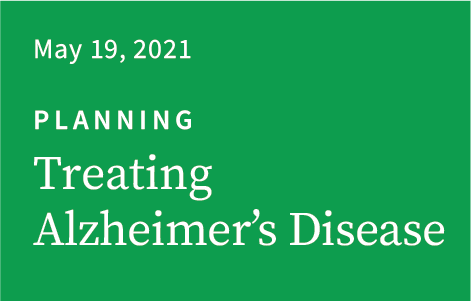Transcript
Treating Alzheimer’s Disease—Where We Stand
We are all looking for the magic pill that slows down or stops Alzheimer’s in its tracks. We even have research that seeks to reverse some of the brain damage from Alzheimer’s disease. Researchers are making good progress, but unfortunately, we aren’t there yet.
Medical treatment for people with Alzheimer’s disease and other degenerative dementias can be broken down into a few major categories: prescription medicines, prescription medicines for psychiatric symptoms that can occur in Alzheimer’s, and over-the-counter and natural products.
In terms of current medicines, our ability to treat Alzheimer’s disease is very limited. A few medicines in a category called cholinesterase inhibitors have been approved for the treatment of Alzheimer’s dementia for about 25 years now. These medications have been shown to provide some very modest benefits for some people.
Aricept® is the most widely prescribed of these. Its generic name is donepezil. Other medicines in the same family as Aricept include Exelon® or rivastigmine, and Razadyne® or galantamine. The logic behind these medicines, and the reason we use them, is that some of the important brain cells that die in Alzheimer’s disease produce the brain chemical acetylcholine—one of the many brain chemicals that enhance or sustain learning and memory. But acetylcholine has a limited lifespan. Cholinesterase inhibitor medicines like Aricept inhibit or decrease the turnover of acetylcholine in the brain, and so whatever acetylcholine is produced by the remaining brain cells lasts longer.
In addition to Alzheimer’s disease, cholinesterase inhibitors also seem to provide some benefit in vascular or mixed dementias and in Lewy body dementia, related to Parkinson’s disease.
The acetylcholine inhibitors are generally very well tolerated without many side effects. Some of the possible side effects, especially when someone just starts on the medicines, include stomach upset, nausea, loose bowels, or diarrhea. Some people get headaches or muscle cramps. Starting at a low dose and slowly building up usually avoids these side effects. A few people may develop very vivid and sometimes uncomfortable dreams, because acetylcholine also plays a role in dream sleep. Rarely, cholinesterase inhibitors can slow heart rate, which can be dangerous in people with certain heart conditions, leading to fainting or falls.
The only other approved prescription medicine for Alzheimer’s dementia at present is Namenda®, whose generic name is memantine. Memantine is in a different chemical class from the cholinesterase inhibitors. It works by blocking the activity of NMDA, a neurotransmitter in the brain that when unregulated, as can occur in Alzheimer’s disease, can have negative effects on brain cell health.
Again, the potential benefits of memantine are quite modest. It’s usually added to a cholinesterase inhibitor when people are in moderate stages of dementia, or used on its own if they don’t tolerate a cholinesterase inhibitor. Memantine also is generally well tolerated. Occasionally people can develop confusion, dizziness, headache, insomnia, and in rare situations, agitation or hallucinations.
Psychiatric medicines can play a very important role when behavioral or neuropsychiatric symptoms occur. While certainly not true for everyone, common symptoms include depression, anxiety, agitation, and sleep disturbances. Hallucinations or delusions are also not uncommon. These symptoms may emerge at different points over the course of the illness and in different ways. They may be mild and temporary, or severe and persistent. It’s important to talk with a physician if these symptoms occur and to discuss whether medications could be helpful.
For the patient with a memory disorder, talk therapy or psychotherapy is often not that helpful because of the patient’s inherent difficulty retaining information, such as insights or the counselor’s suggestions. On the other hand, counseling for the caregiver or family members of the patient with Alzheimer’s disease can be enormously helpful. Counseling can offer techniques for coping with mood and behavior problems, such as managing communications with their loved ones, or making adjustments in activities and their environment. In this way, very often we can avoid using psychiatric medicines. But if neuropsychiatric symptoms take on a life of their own in the patient, a dramatic benefit also can be achieved with various medicines, including antidepressants, mood stabilizers, antianxiety medicines, and antipsychotic medicines.
I often get asked about vitamins, nutritional supplements, or other herbal, natural, or alternative remedies for dementia. Understandably, this is a huge market as people seek solutions that scientific medicine doesn’t yet provide.
I find it really difficult to give an opinion about any particular product. Some supplements make sense biologically and even show benefit in the lab in test tubes or animal models of Alzheimer’s disease. But so few have been studied in well-designed clinical trials.
Vitamin E and ginkgo have undergone some study. Both generated a lot of interest based on their biological effects in cell culture and animal models, and both even showed a little bit of benefit in small pilot clinical trials in humans. But when they were put to a real test and compared with placebo in large national trials, neither showed any benefit. Nonetheless, these supplements, natural products, and some others warrant more serious investigation.
While we have no known cure for Alzheimer’s disease, and only modestly effective treatments for its symptoms, we still have tremendous hope as research efforts increase to keep pace with the burgeoning population of people with mild cognitive impairment and dementia.
Today, Alzheimer’s and related dementias are epidemic in scope, touching almost all of us personally. Its emotional and social tolls are huge. Economically, Alzheimer’s has now superseded cancer and heart disease as the most costly health care problem in the U.S.
Recognizing the disease’s sweeping effects, the U.S. Congress passed the National Alzheimer’s Project Act, resulting in long-overdue increases in research funding from the National Institutes of Health as well as advocacy foundations like the Alzheimer’s Association.
Thanks to research, we are making important headway. Today, we’re much better at diagnosing Alzheimer’s disease than we were even a few years ago. Research has also revealed many new insights into the cellular and molecular complexities of the aging brain that drive the emergence and progression of the disease. We recognize that Alzheimer’s disease is more than the amyloid plaques or tau tangles. We see important contributions from inflammation, vascular injury, and fundamental cell biology processes like oxidative injury, mitochondrial and metabolic stress, protein misfolding, and synaptic plasticity.
While these mechanisms may seem daunting, all of these processes are potential clues, entry points for research into the vicious degenerative cycle of Alzheimer’s disease.
We may even already have cures for Alzheimer’s disease in hand with medicines developed for other conditions. We just don’t know it yet. Some of the same fundamental drivers of conditions like rheumatoid arthritis, heart failure, diabetes, and certain cancers are also at play in the Alzheimer’s disease brain. Could any of the medications that revolutionized treatment of these conditions also be helpful in Alzheimer’s disease?
So I leave you with one thought: the importance of clinical research trials. We may already have a cure for the disease, but the only way to find out is for patients with Alzheimer’s disease to partner with researchers to test treatments in well-designed clinical trials. Getting involved in a clinical trial is a way to actively fight back against this devastating disease that takes so much.
Steven E. Arnold, MD
Professor of Neurology
Harvard Medical School
Managing Director
Interdisciplinary Brain Center, Massachusetts General Hospital
www.actru.org

